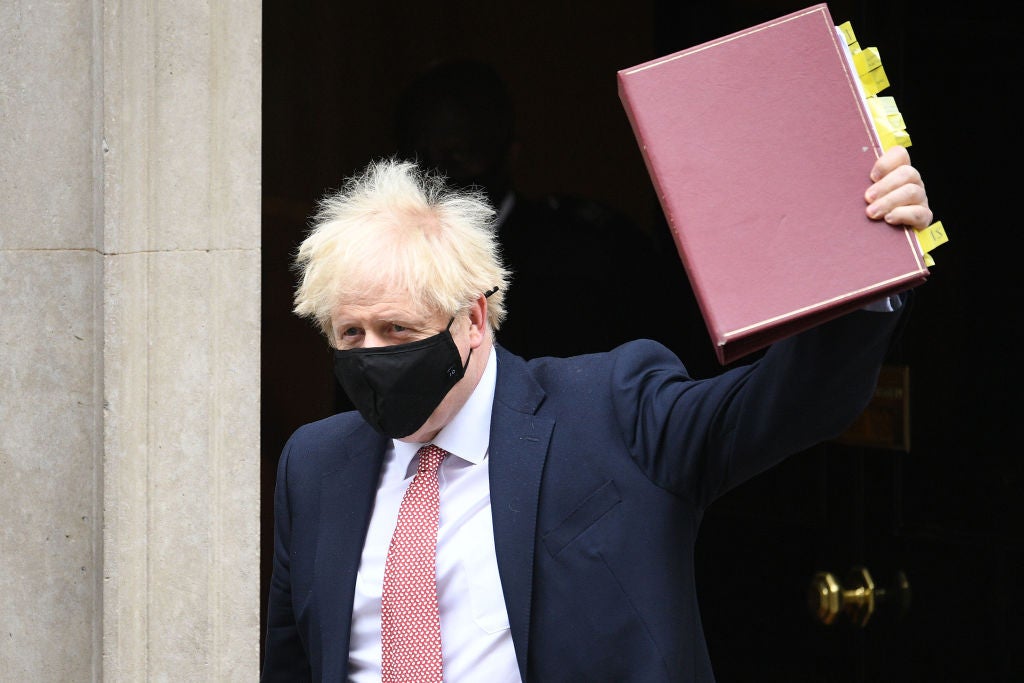Boris Johnson’s policy on coronavirus is not wrong, it is simply incompetent
Editorial: The public’s confidence in the government is waning. New restrictions should be acted on immediately and rigorous testing should be a priority

The Independent finds itself in a similar awkward position to that of Keir Starmer, the leader of the opposition. We broadly support the government’s approach to trying to control coronavirus, but our view is that it has been managed appallingly badly.
Mr Starmer was accused by the prime minister this week of criticising the government without having an alternative policy. But it is the job of the opposition, even if it agrees with the policy, to point out that it is being implemented in such a way as to undermine its effectiveness.
The latest example of Boris Johnson’s uncertain touch was the leak yesterday of his decision to impose new restrictions in Merseyside and other parts of northern England – but not until the start of next week. This has infuriated local government leaders, who were not consulted, and risks encouraging irresponsible behaviour this weekend as people rush to pubs and restaurants before they are shut down.
This is no way to run a public health emergency. While we understand the problems of balancing consultation with the need to prevent premature disclosure, Mr Johnson seems adept at achieving the worst of several worlds, neither consulting widely enough nor preventing leaks. He should realise that in dealing with the virus he must announce decisions as soon as they are taken. Nothing is gained by waiting.
This is a criticism that Mr Starmer has made repeatedly – that the government has been too slow in responding to changing information. He is right, and it is not partisan to suggest that public confidence in the government has been undermined as a result.
While the government has probably got the balance about right between controlling the spread of the virus and keeping people’s livelihoods going, there are a number of serious inconsistencies in its approach that need to be fixed.
The first and most important failing is in the test, trace and isolate system. The disaster of lost data and the continuing inability of the system to follow up initial positive test results means that the huge and welcome increase in testing capacity is in danger of being wasted. Matt Hancock, the health secretary, urgently needs to take stock and scale back the ambitions of the system, so that it focuses on priority areas – hospitals, care homes and schools – and gets them right before trying to cover the whole population.
There are heartbreaking stories of families unable to see their loved ones in care homes, because of a well-intentioned overreaction to the early failure to protect the care sector. Some of those restrictions need to be relaxed – as they should be for funerals – and they could be relaxed if the testing and protective regime were more rigorous.
Then there is the shambles of controls on arrivals at airports, where quarantine, which might work in theory but is unenforceable in practice, has been preferred to rough-and-ready testing and repeat testing, which would probably be more effective.
In all this, the dispute over what time pubs and restaurants should close seems like a distraction. Perhaps the decision to impose a 10pm closing time was not based on evidence, but it seems clear now that the alternative is not to allow pubs to stay open late but to close them down altogether, which is now going to happen in large parts of northern England.
It may be that we have to accept that jobs will be lost in the hospitality sector as the price for keeping the rest of the economy going as normally as possible. That would be a price that would be easier to bear if we could have more confidence that the government is capable of basic competence in controlling the virus.




Join our commenting forum
Join thought-provoking conversations, follow other Independent readers and see their replies
Comments